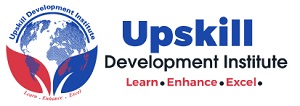Introduction
The main objective of the course is to enhance the capabilities of technical staff involved in Food Security Analysis, climate analysis and agriculture by providing them with an understanding on the use of spatial and Earth Observation (EO) information as a tool to integrate knowledge about climate change, agriculture, and food security in a meaningful and innovative way.
No of Days
10 Days
Objectives
- Understand the basic concepts of GIS and Remote Sensing
- Apply GIS and RS for designing implementations of large scale early warning systems
- Use participatory GIS (PGIS) tools during assessments at community level
- Apply remote sensing data and image processing techniques to monitor select CCAFS indicators
- Use mobile phones to gather data during field assessments/surveys
- Design and implement their own GIS projects that integrate remote sensing data and GPS-based field information
- Assess spatial data availability and understand the importance of spatial data infrastructure (SDI), for data sharing by organizations involved in CCAFS
- Understand concepts and main frameworks in Food Security Analysis
- Understand concepts and main frameworks in Climate Change Analysis
- Understand concepts and main frameworks in Agriculture
- Understand the relationship between climate change, agriculture and food security
- Apply GIS and Remote Sensing as Decision support tool for Climate Change, Agriculture and Food Security (CCAFS).
- Use GIS information in planning FS interventions through spatial multi-criteria analysis
Course Outline
Key concepts and definitions
- Introduction to climate change, Agriculture, Food security and their relationship
- GIS for climate change, Agriculture and Food security
- Introduction to GIS and R.S concepts in the context of climate change, Agriculture and Food security (CCAFS)
- GIS project design and setup
- Sources of GIS data for CCAFS
Basic use of GIS Software
- Integrating data from different sources into a GIS
- Using handheld GPS for field data collection
- Geospatial Analysis for Agriculture and food security
Mapping
- Mapping areas of climate change
- Mapping areas of food insecurity
- Remote Sensing in CCAFS
- Introduction to Remote sensing
Remote sensing
- Use of Remote sensing and image analysis software
- Satellite Image Acquisition
- Image interpretation
Image
- Image classification
- Change detection
The impacts of climate change on Agriculture and food security
Use of GIS in Climate Predictions
- Response to climate change: Adaptation and mitigation: the climate analogue tool
- Role of climatic change detection on Agriculture and food security
- International and National Policy Framework for addressing climate change; UNFCCC Kyoto protocol and existing local policies
GIS and Remote sensing in Agriculture
- Yield monitoring and mapping
- Characterizing soil spatial variability
- Site?specific soil management: prescription maps
- Grid sampling, management zones, realistic yield expectations
- Remote sensing (RS) for site?specific management.
Assessment and Analysis
- Food Security Assessment and Analysis
- The use of satellite imagery for food insecurity detection and recovery
- Visualization of vulnerability information
- Assessing food insecurity impact
- Climate change sources of uncertainty and variation
Global Positioning System (GPS) and Basic GPS skills
- Types of GPS
- GPS configuration, Capturing data from surveys
- GPS data download and related tasks
- Integrating GPS field data into the GIS database
Public Participatory GIS and data collection using mobile phones
- Participatory GIS methods
- Participatory GIS and HVR analysis
- Community-based climate predictions
- Using GIS to Build hazard-aware and ready communities
- Use of Mobile Phones for GIS Data collection in Assessment and Surveys
Training Approach
This course will be delivered by our skilled trainers who have vast knowledge and experience as expert professionals in the fields. The course is taught in English and through a mix of theory, practical activities, group discussion and case studies. Course manuals and additional training materials will be provided to the participants upon completion of the training.
Tailor-Made Course
This course can also be tailor-made to meet organization requirement. For further inquiries, please contact us on: Email: training@upskilldevelopment.com Tel: +254 721 331 808
Training Venue
The training will be held at our Upskill Training Centre. We also offer training for a group at requested location all over the world. The course fee covers the course tuition, training materials, two break refreshments, and buffet lunch.
Visa application, travel expenses, airport transfers, dinners, accommodation, insurance, and other personal expenses are catered by the participant
Certification
Participants will be issued with Upskill certificate upon completion of this course.
Airport Pickup and Accommodation
Airport pickup and accommodation is arranged upon request. For booking contact our Training Coordinator through Email: training@upskilldevelopment.com, +254 721 331 808
Terms of Payment: Unless otherwise agreed between the two parties payment of the course fee should be done 3 working days before commencement of the training so as to enable us to prepare better.

